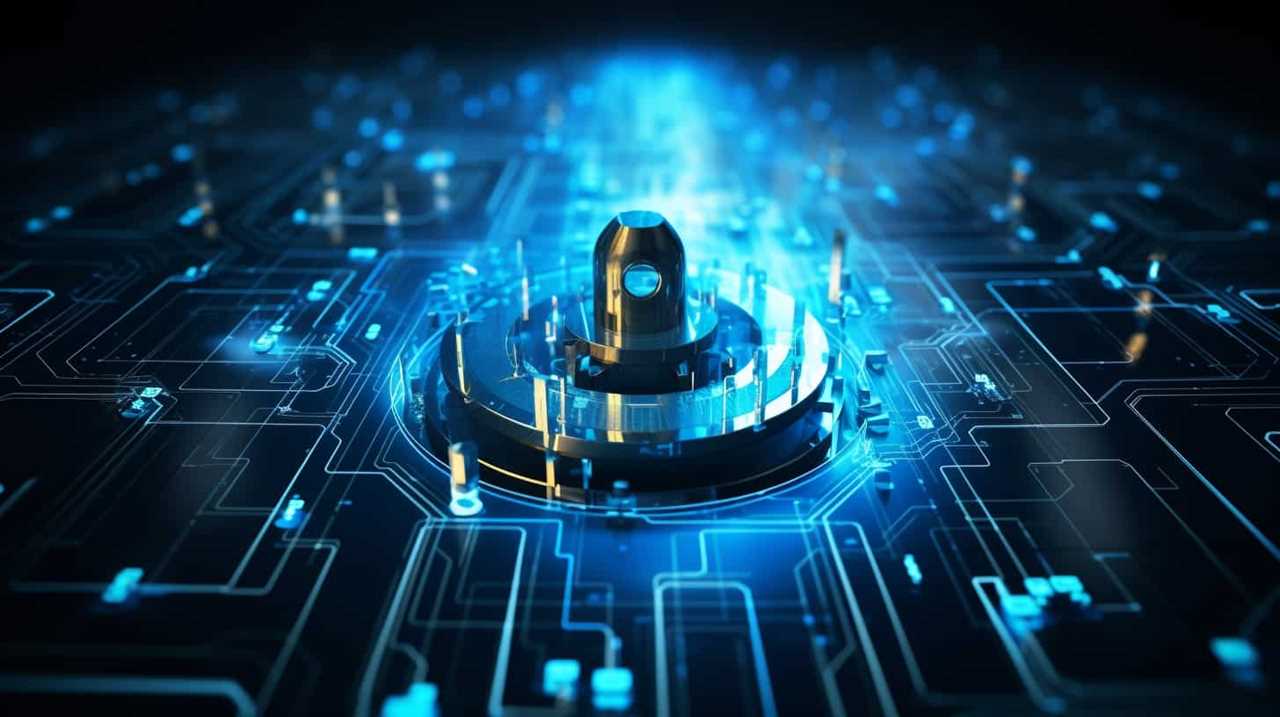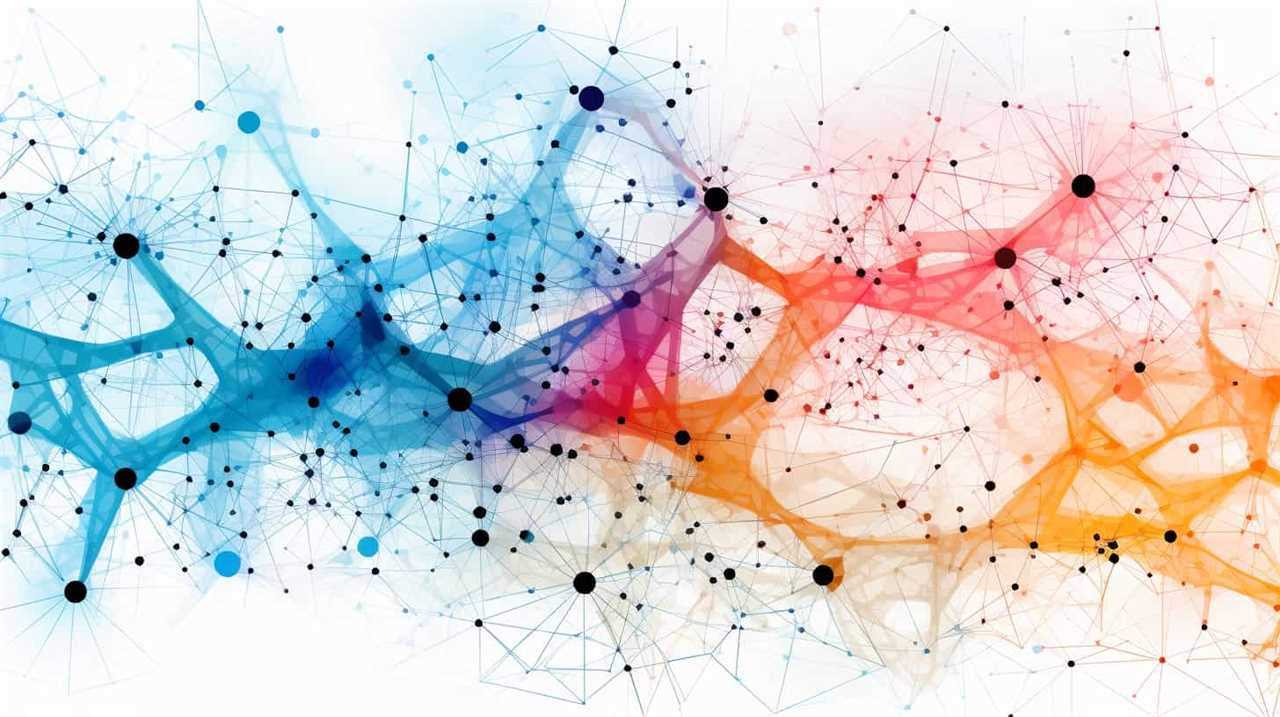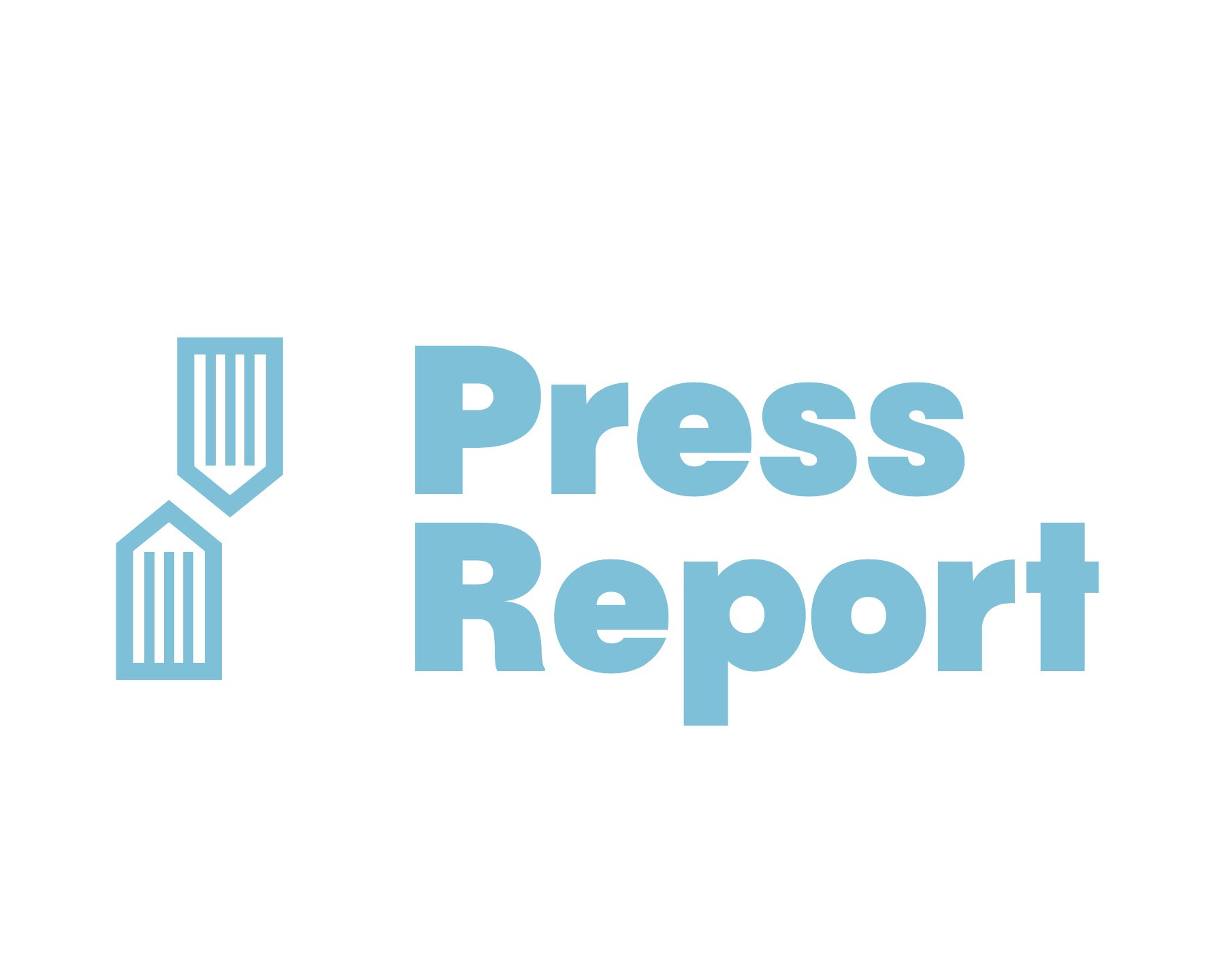AI Security
Beyond Firewalls: The Deep Psychological Safety of AI Security

Have you ever contemplated the hidden vulnerabilities within AI security systems?
As an AI security expert, I’ve delved into the fascinating realm of human psychology and its impact on safeguarding against cyber threats.
In this article, we’ll explore the profound connection between emotional intelligence and AI security, and how it can revolutionize the way we build trust in these systems.
Join me on this journey as we uncover the deep psychological safety that lies beyond traditional firewalls.
Key Takeaways
- Understanding human vulnerability and cognitive biases is crucial in AI security.
- Emotional impact and psychological safety play a significant role in AI security.
- Trust, transparency, and ethical considerations are essential in AI security systems.
- Emotional intelligence and collaboration can enhance AI security.

The Role of Human Psychology in AI Security
In my experience, human psychology plays a crucial role in ensuring the security of AI systems. Understanding human vulnerability and cognitive biases is paramount in designing robust defenses against potential threats.
Humans are often the weakest link in the security chain, susceptible to manipulation and social engineering attacks. Cognitive biases, such as confirmation bias and anchoring bias, can cloud judgment and lead to poor decision-making when it comes to AI security. Attackers exploit these vulnerabilities by leveraging psychological tactics to deceive and gain unauthorized access.
To counter this, it’s essential to educate users about common cognitive biases and train them to recognize and mitigate potential risks. By incorporating psychological insights into AI security frameworks, we can enhance the overall resilience of systems and protect against emerging threats.

Understanding the Emotional Landscape of Cyber Threats
One key aspect of understanding the emotional landscape of cyber threats is recognizing the impact of fear on human behavior. Fear, as a primary emotion, triggers a fight-or-flight response, leading individuals to react in specific ways to perceived threats.
In the context of cyber threats, fear can have a significant emotional impact on user behavior. It can influence individuals to take precautionary measures such as avoiding certain websites or refraining from sharing personal information online.
Understanding how fear affects user behavior is crucial for developing effective AI security measures that can mitigate cyber threats. By leveraging emotional intelligence, AI systems can better anticipate and respond to user fears, providing a sense of psychological safety.
Transitioning to the subsequent section, let’s explore how emotional intelligence can be harnessed to enhance AI security.

Leveraging Emotional Intelligence to Enhance AI Security
To enhance AI security, I leverage emotional intelligence.
Emotional intelligence training plays a vital role in understanding and managing the psychological impact of AI security. By developing emotional intelligence skills, individuals can effectively navigate the complex landscape of cybersecurity threats and respond appropriately.
Emotional intelligence enables us to recognize and regulate our own emotions, as well as understand and empathize with the emotions of others. This heightened awareness allows us to anticipate and address potential vulnerabilities in AI systems, ensuring their security and reliability.
Additionally, emotional intelligence training facilitates effective communication and collaboration within teams, enhancing overall cybersecurity efforts. By incorporating emotional intelligence into AI security practices, we can proactively address the human element of cybersecurity, ultimately bolstering the protection of sensitive data and systems.

Building Trust and Confidence in AI Security Systems
As I delve into the topic of building trust and confidence in AI security systems, it becomes evident that establishing a strong foundation is crucial for ensuring the reliability and effectiveness of these advanced technologies. Trust and transparency in AI security are key factors that must be addressed to instill confidence in users.
Users need to understand how AI systems make decisions and how their data is being used to ensure ethical considerations are met. Transparency in the form of explainability and interpretability can help build trust by allowing users to understand why certain decisions are made.
Additionally, ethical considerations in AI security, such as data privacy and algorithmic bias, must be carefully addressed to ensure fairness and accountability. By focusing on trust, transparency, and ethical considerations, we can build a solid foundation for AI security systems that users can rely on.
Transitioning into the future of AI security, it’s important to strike a balance between technological advancements and human factors to ensure the ongoing effectiveness and adaptability of these systems.

The Future of AI Security: Balancing Technology and Human Factors
Continuing the discussion from the previous subtopic, it’s crucial to strike a balance between technological advancements and human factors in order to ensure the ongoing effectiveness and adaptability of AI security systems. Achieving this balance is essential for addressing the ethical implications of AI security and mitigating the impact on privacy.
Here are four key considerations:
- Privacy-preserving AI: AI security systems should be designed to protect user privacy by minimizing the collection and storage of personal data. Implementing techniques like federated learning and differential privacy can help achieve this goal.
- Transparency and explainability: AI security algorithms should be transparent and explainable, allowing users to understand how decisions are being made and ensuring accountability. This can help build trust and address concerns regarding bias and discrimination.
- User-centric design: Human factors, such as usability and user experience, should be prioritized in the development of AI security systems. This involves considering the needs, preferences, and limitations of users to create intuitive and accessible interfaces.
- Continuous monitoring and improvement: AI security systems should be continuously monitored and updated to adapt to evolving threats and vulnerabilities. Regular audits and assessments can help identify and address potential weaknesses, ensuring the ongoing effectiveness of the system.

Frequently Asked Questions
How Does the Role of Human Psychology Impact the Effectiveness of AI Security Systems?
The role of human psychology significantly impacts the effectiveness of AI security systems. Human vulnerability and cognitive biases can lead to errors in judgment and decision making, potentially compromising the security measures in place.
What Are Some Common Emotional Responses That Individuals Experience When Facing Cyber Threats?
When facing cyber threats, individuals often experience a range of emotional responses, such as fear, anxiety, and anger. These emotional reactions can trigger various coping mechanisms, including heightened vigilance, risk aversion, and seeking support from others.
How Can Emotional Intelligence Be Used to Improve the Overall Security of AI Systems?
Using emotional intelligence in cybersecurity enhances user experience in AI security. By understanding and addressing emotional responses to cyber threats, we can create a deep psychological safety that improves the overall security of AI systems.
What Strategies Can Be Implemented to Build Trust and Confidence in AI Security Systems?
To build user trust and enhance cybersecurity confidence in AI security systems, implementing strategies such as transparent communication, rigorous testing, and continuous improvement are crucial. These measures ensure reliability and instill confidence in the system’s capabilities.
In the Future, How Can the Balance Between Technology and Human Factors Be Achieved in AI Security?
In the future, I believe achieving a balance between technology and human factors in AI security requires close collaboration between experts in both fields. Ethical considerations must be at the forefront to ensure the safety and well-being of individuals and society.

Conclusion
In the ever-evolving landscape of AI security, understanding the deep psychological aspects is paramount.
Just as firewalls protect us from external threats, harnessing emotional intelligence can fortify our defense against cyber threats.
By building trust and confidence in AI security systems, we can create a harmonious balance between technology and human factors.
As we navigate the future, let’s remember that the rhythm and flow of our collective efforts will shape the resilience of our digital world.
Bennett is the embodiment of versatility, adapting his writing to cover a broad spectrum of topics with professionalism and flair. Whether it’s breaking news, in-depth analyses, or feature pieces, Bennett’s contributions enrich Press Report with diverse perspectives and engaging content. His adaptability and keen journalistic instincts make him a vital member of our team, capable of capturing the essence of the moment in every story.
AI Security
Unveiling the Legal Consequences: AI Security Ethics

We are now in a new era where artificial intelligence plays a major role in shaping our daily lives and the way we work. However, it is important to acknowledge the significant responsibility that comes with this power.
In the realm of AI security, the stakes are high, and the consequences of breaches are far-reaching. As we delve into the legal landscape surrounding AI security ethics, we must confront the daunting complexities of liability, intellectual property, privacy concerns, discrimination, regulatory compliance, accountability, and the need for an international framework.
Join us on this journey of unraveling the legal consequences of AI security ethics.
Key Takeaways
- Liability for data breaches in AI systems and the importance of adhering to cybersecurity regulations to prevent unauthorized access and breaches.
- The need to prioritize data security and invest in robust cybersecurity measures to avoid potential legal consequences such as financial penalties and reputational damage.
- The significance of patenting AI security innovations to secure unique technologies and encourage advancements in the field, while also considering the legal challenges and complexities in this process.
- The role of copyright protection in safeguarding proprietary algorithms and software in AI systems, enabling fair use while protecting trade secrets and promoting the development of new AI security technologies.
Liability for AI Security Breaches
When it comes to addressing liability for AI security breaches, we must consider the potential legal consequences and responsibilities. Data breach liability is a significant concern in the realm of artificial intelligence.

As AI systems become more prevalent and complex, the risk of data breaches increases. Organizations that collect and process large amounts of sensitive data must adhere to cybersecurity regulations to protect against unauthorized access and potential breaches.
In the event of a breach, the responsible party may face legal consequences, including financial penalties and reputational damage. It’s crucial for organizations to prioritize data security and invest in robust cybersecurity measures.
This includes implementing encryption protocols, regularly updating security systems, and training employees on best practices for data protection. By taking these precautions, organizations can mitigate the risk of AI security breaches and fulfill their ethical obligations to safeguard personal information.
Intellectual Property Rights in AI Security
When it comes to AI security, intellectual property rights play a crucial role in protecting innovations and creations.

One important aspect is patenting AI security innovations, which allows developers to secure their unique technologies and prevent others from using them without permission.
Additionally, copyright protection is also essential for safeguarding AI systems, as it grants exclusive rights to the creators and prevents unauthorized copying or distribution of their works.
These intellectual property rights ensure that developers are rewarded for their efforts and encourage further advancements in AI security technology.
Patenting AI Security Innovations
We believe that securing intellectual property rights for AI security innovations through patents is crucial. Patents serve as a powerful tool to incentivize and protect the efforts of researchers and developers in the field of AI security. By patenting AI algorithms and innovations, individuals and organizations can gain exclusive rights over their inventions, preventing others from using or profiting from their creations without permission. However, patenting AI security innovations is not without its legal challenges. The unique nature of AI technology and the rapid pace of innovation present complexities in determining patent eligibility and infringement. Additionally, the potential for unintended consequences, such as hindering collaboration and impeding progress, must be carefully considered. Nevertheless, by navigating these challenges, patenting AI security innovations can foster a climate of innovation, incentivize investment, and ultimately contribute to the advancement of AI security.

| Pros | Cons |
|---|---|
| Encourages innovation | Legal complexities |
| Provides exclusivity | Potential unintended consequences |
| Incentivizes investment | Hinders collaboration |
| Protects intellectual property | Impedes progress |
Copyright Protection for AI
Securing copyright protection for AI in the field of AI security is an essential step in safeguarding intellectual property rights and promoting innovation. Copyright protection ensures that creators of AI systems have the exclusive right to reproduce, distribute, and publicly display their work, giving them the necessary incentives to invest in AI research and development.
In the context of AI security, copyright protection plays a crucial role in several ways:
- It allows AI security companies to protect their proprietary algorithms and software from unauthorized use or reproduction.
- Copyright protection enables fair use of AI technology, ensuring that individuals and organizations can utilize AI systems for legitimate purposes without infringing on the rights of copyright holders.
- It helps in safeguarding trade secrets and confidential information embedded within AI systems, preventing unauthorized access or disclosure.
- Copyright protection promotes the development of new AI security technologies and encourages competition among AI security providers.
- It fosters collaboration and knowledge sharing within the AI security community, while still respecting the rights of creators.
By ensuring robust copyright protection for AI, we can create an environment that fosters innovation and protects the rights of AI security developers. However, copyright protection is just one aspect of the legal framework surrounding AI security.
Privacy concerns in AI security also need to be addressed to ensure the responsible and ethical use of AI technology.

Privacy Concerns in AI Security
Often, our personal data is vulnerable to exploitation and misuse in the realm of AI security. The rapid advancement of artificial intelligence has raised significant concerns regarding data protection and surveillance. As AI systems gather and analyze vast amounts of personal information, there’s a heightened risk of unauthorized access, breaches, and potential misuse. This poses a threat to individuals’ privacy rights and autonomy.
The potential for AI systems to monitor and track individuals’ activities, both online and offline, raises surveillance concerns. The collection and analysis of personal data without proper consent can lead to a violation of privacy rights. These privacy concerns highlight the need for robust legal frameworks and regulations to ensure that AI security is aligned with ethical principles and protects individuals’ privacy rights.
Transitioning into the subsequent section about discrimination and bias in AI security, it’s important to explore the potential consequences of AI systems perpetuating discriminatory practices.
Discrimination and Bias in AI Security
Moving from the previous subtopic of privacy concerns in AI security, it’s crucial to address the issue of discrimination and bias within this field. Algorithmic bias and fairness concerns have become significant challenges in AI security. Here are some key points to consider:

- Lack of diversity in training data: If the data used to train AI systems is biased or limited, it can lead to discriminatory outcomes.
- Unintentional bias: Even when developers have good intentions, biases can still emerge in AI systems due to the inherent biases in the data used.
- Discrimination amplification: AI systems can perpetuate and amplify existing societal biases, leading to discrimination against certain groups of people.
- Transparency and accountability: It’s essential to ensure transparency in the design and deployment of AI systems to prevent unfair and discriminatory practices.
- Mitigating bias: Efforts should be made to develop robust strategies to detect and mitigate algorithmic bias in AI security systems to uphold fairness and avoid discrimination.
Addressing discrimination and bias in AI security is essential to ensure that these technologies don’t perpetuate or amplify existing inequalities in society.
Regulatory Compliance in AI Security
When it comes to regulatory compliance in AI security, there are significant legal risks that need to be considered. The use of AI technology raises ethical implications that require careful examination.
It’s essential to ensure that AI systems comply with laws and regulations to protect against potential legal consequences and uphold ethical standards.
Legal Risks in AI
We need to ensure regulatory compliance in AI security to mitigate legal risks. Failure to comply with regulations can lead to serious consequences, such as hefty fines and reputational damage. When it comes to AI, there are specific legal risks that organizations must address:

- Data privacy: Organizations must ensure that AI systems handle personal data in compliance with applicable privacy laws, such as the General Data Protection Regulation (GDPR). This includes obtaining informed consent, implementing appropriate security measures, and providing individuals with rights to access and delete their data.
- Algorithm transparency: Organizations should strive for transparency in AI algorithms to avoid potential biases or discrimination. This involves documenting the data sources, training methods, and decision-making processes behind AI systems, allowing for accountability and fairness.
- Liability: As AI becomes more autonomous, questions arise regarding liability for any harm caused by AI systems. Organizations must navigate the legal landscape to determine who’s responsible in case of accidents or malfunctions.
- Intellectual property: Protecting intellectual property rights is crucial in AI development. Organizations must understand and comply with patent and copyright laws to safeguard their AI innovations and prevent unauthorized use or infringement.
- International regulations: With AI being a global phenomenon, organizations must navigate the complex web of international regulations. This includes understanding and complying with different legal frameworks and ensuring cross-border data transfers are done in compliance with relevant laws.
Ethical Implications of AI
To address the ethical implications of AI and ensure regulatory compliance in AI security, we must actively engage in implementing and enforcing ethical guidelines.
As AI technology continues to advance and become more integrated into various aspects of our lives, it’s crucial to consider the potential societal impact. Ethical implications arise when AI systems make decisions that affect individuals or communities. These decisions may have far-reaching consequences, such as biased algorithms or privacy concerns.
Therefore, it’s vital to establish a framework that promotes transparency, fairness, and accountability in AI development and deployment.
Regulatory compliance plays a significant role in achieving this goal, as it sets standards and guidelines for organizations to follow. By adhering to these regulations, we can mitigate the ethical risks associated with AI and ensure that its impact on society is positive and beneficial.

Accountability for AI Security Failures
Regularly, our team actively examines the issue of accountability for AI security failures in order to better understand the legal consequences involved in this complex field of study. When it comes to the ethics of algorithms and the legal challenges surrounding them, there are several key points to consider:
- Attribution: Determining who’s responsible for AI security failures can be difficult, especially when multiple parties are involved in the development and deployment of the technology.
- Negligence: Holding individuals or organizations accountable for AI security failures requires establishing a standard of care and proving that they failed to meet it.
- Regulatory Framework: Creating a comprehensive legal framework that addresses AI security failures is essential to ensure accountability and protect individuals and society.
- Liability: Defining the liability for AI security failures is crucial to determine who should bear the financial and legal consequences of any harm caused.
- Transparency: Ensuring transparency in AI systems and algorithms is vital to hold developers and operators accountable for any security failures.
International Legal Framework for AI Security
In examining the legal consequences of AI security ethics, our team delves into the creation of an international legal framework for AI security.
As artificial intelligence becomes more prevalent in our global society, it’s essential to establish a system of international cooperation to address the challenges and risks associated with AI security.
This framework would promote collaboration among nations and facilitate the sharing of best practices, standards, and guidelines for securing AI systems.

Additionally, it would provide a platform for discussions on data governance, ensuring that ethical principles are followed in the collection, use, and sharing of data in AI applications.
Frequently Asked Questions
What Are the Potential Financial Consequences for Companies or Individuals in the Event of an AI Security Breach?
Potential financial consequences and liability risks can arise for companies or individuals in the event of an AI security breach. It is crucial to understand and mitigate these risks to protect both financial assets and reputations.
How Are Intellectual Property Rights Protected in the Context of AI Security?
Intellectual property rights are crucial in the realm of AI security. Adequate protection ensures prevention of infringement and theft, safeguarding valuable innovations. Patent protection plays a vital role in preserving the rights of creators and promoting ethical practices.
How Can Privacy Concerns Be Addressed and Safeguarded in the Implementation of AI Security Systems?
To address privacy concerns and safeguard them in AI security systems, we must carefully consider the ethical implications. Through transparent data collection, robust encryption, and strict access controls, we can ensure privacy is respected and protected.

What Measures Can Be Taken to Mitigate Discrimination and Bias Issues That May Arise in AI Security Systems?
To mitigate bias and ensure fairness in AI security systems, we must implement rigorous measures. This includes developing transparent algorithms, conducting regular audits, and promoting diversity in the development and training of AI models.
What Are the Key Regulatory Requirements That Organizations Need to Comply With in the Field of AI Security?
To ensure regulatory compliance in the field of AI security, organizations must adhere to key requirements. Ethical considerations play a crucial role in this process, as we strive to create secure and unbiased systems.
Conclusion
In unraveling the intricate web of AI security ethics, we find ourselves standing at the crossroads of liability, intellectual property, privacy, discrimination, regulatory compliance, and accountability. These legal consequences, like tangled vines, intertwine and grow, demanding careful navigation.
As we delve into this realm, let’s not forget the weight of our actions. For it’s in our hands to shape a future where the ethical principles guiding AI security are upheld, ensuring a world that’s just and fair.

Bennett is the embodiment of versatility, adapting his writing to cover a broad spectrum of topics with professionalism and flair. Whether it’s breaking news, in-depth analyses, or feature pieces, Bennett’s contributions enrich Press Report with diverse perspectives and engaging content. His adaptability and keen journalistic instincts make him a vital member of our team, capable of capturing the essence of the moment in every story.
AI Security
Unveiling the Future: Navigating Data Protection in AI

As we move forward into the future of AI, we are facing a crucial moment in terms of safeguarding data.
In this article, we will navigate the intricate landscape of safeguarding data in the realm of artificial intelligence. By unraveling the complexities of GDPR and exploring key principles, we will shed light on transparency, consent, and the minimization of data.
Join us as we unveil the path to ensuring compliance and preserving the rights of data subjects in this rapidly evolving AI era.
Key Takeaways
- GDPR compliance is crucial in AI implementation to protect the rights and freedoms of individuals.
- Key principles of data protection in AI include purpose limitation, transparency, data minimization, accuracy, and accountability.
- Transparency in AI data processing ensures fairness, explainability, auditability, and access to information for individuals.
- Obtaining informed consent in AI data collection is complex but necessary to address ethical implications.
GDPR and AI: Ensuring Compliance
As we delve into the intersection of GDPR and AI, it’s crucial to ensure that we comply with the data protection regulations. The impact and challenges of GDPR on AI implementation can’t be underestimated.

GDPR aims to protect the rights and freedoms of individuals by regulating the processing of personal data. When it comes to AI, which relies heavily on data, it becomes imperative to navigate the complexities of GDPR.
Practical implementation of GDPR in AI requires a thorough understanding of its principles and provisions. Consent, data minimization, and purpose limitation are just a few key aspects that need to be considered. Additionally, ensuring transparency, accountability, and the rights of data subjects are essential in meeting GDPR requirements.
Key Principles of Data Protection in AI
Navigating the intersection of GDPR and AI, we prioritize understanding and implementing the key principles of data protection.
In the realm of AI, where vast amounts of personal data are processed, it’s crucial to adhere to these principles to ensure the privacy and security of individuals.

The first key principle is purpose limitation, which requires that personal data is collected and processed for specific, legitimate purposes.
Transparency is another important principle, ensuring that individuals are informed about the processing of their data.
Additionally, data minimization emphasizes the need to limit the collection and storage of personal data to what’s necessary.
Finally, the principle of accuracy and accountability mandates that organizations maintain accurate and up-to-date data while taking responsibility for its protection.

Transparency in AI Data Processing
Moving forward in our exploration of data protection in AI, we now delve into the crucial aspect of transparency in AI data processing. Transparency plays a vital role in ensuring fairness in algorithms and addressing bias in AI data processing. By providing visibility into the inner workings of AI systems, transparency enables users and stakeholders to understand how decisions are being made and to identify potential biases or discriminatory practices. To illustrate this concept, consider the following table:
| Transparency Measures | Description | Benefits |
|---|---|---|
| Explainability | Providing clear explanations of AI decisions | Increased trust and accountability |
| Auditability | Allowing for independent audits of AI systems | Detection and mitigation of biases |
| Access to Information | Granting individuals access to their personal data used in AI systems | Empowerment and control over personal information |
Consent and Data Collection in AI
When it comes to AI data collection, ethical considerations are paramount. It’s crucial to ensure that data is collected in a manner that respects individuals’ privacy and maintains their autonomy.
However, obtaining informed consent in the context of AI can be challenging due to the complexity of the technology and the potential for unforeseen uses of collected data. We must carefully navigate these challenges to protect privacy and mitigate the potential privacy implications of AI.
Ethical AI Data Collection
One key aspect of ethical AI data collection is obtaining informed consent from individuals before their data is collected and used. This ensures that individuals have a say in how their personal information is utilized in AI systems. Informed consent involves providing individuals with clear and understandable information about the purpose and scope of data collection, as well as any potential risks involved. It’s crucial to obtain consent that’s freely given, without coercion or manipulation.

Additionally, responsible data usage is essential in ethical AI data collection. This involves ensuring that data is collected and used in a manner that respects privacy and confidentiality, and that appropriate security measures are in place to protect the data from unauthorized access or misuse. By adhering to these principles, ethical AI data collection can help mitigate ethical AI bias and promote transparency and trust in AI systems.
Informed Consent Challenges
To address the challenges of obtaining informed consent in AI data collection, we must ensure that a comprehensive and transparent process is in place. This is crucial to address the ethical implications surrounding the use of personal data in AI systems. Informed consent is the cornerstone of data protection and privacy rights, enabling individuals to have control over their personal information. However, in the context of AI, obtaining informed consent becomes more complex due to the unique characteristics of these systems. AI often involves collecting and analyzing vast amounts of data, making it difficult to provide individuals with a clear understanding of how their data will be used. Additionally, AI algorithms can make decisions and draw inferences that may not be easily explainable to individuals. Balancing the need for informed consent with the practical challenges of AI data collection requires careful consideration and the development of innovative solutions.
| Challenges | Solutions |
|---|---|
| Transparency and Understandability | Clearly communicate how data will be used and the potential impact of AI decisions. Provide explanations that are understandable to individuals. |
| Granularity and Control | Allow individuals to provide consent for specific data uses and enable them to easily withdraw consent at any time. |
| Consent in Dynamic Systems | Implement mechanisms to continuously update consent as AI systems evolve and new data uses emerge. |
| Vulnerable Populations | Implement additional safeguards and support for individuals who may be more vulnerable to potential harm from AI data collection. |
| Accountability and Auditing | Ensure accountability for data collection and use, and establish mechanisms for auditing and oversight to ensure compliance with consent practices. |
Privacy Implications in AI
In navigating the privacy implications of AI, we must actively address the challenges surrounding consent and data collection in AI systems. Data privacy is of utmost importance when it comes to AI algorithms, as they rely heavily on vast amounts of data to function effectively. However, the collection of this data raises concerns about the privacy and consent of individuals involved.
To ensure data privacy in AI, we need to consider the following:

- Transparent data collection practices: AI systems should clearly communicate how data is being collected and used to users, ensuring informed consent.
- Minimization of data collection: AI algorithms should only collect the necessary data required for their intended purpose to minimize the risk of privacy breaches.
- Anonymization and encryption: Personal data should be anonymized and encrypted to protect the privacy of individuals and prevent unauthorized access.
- User control and consent: Individuals should have control over their data and be able to provide explicit consent for its collection and use in AI systems.
Minimization of Data in AI Systems
When it comes to the minimization of data in AI systems, there are several important points to consider.
First, data retention policies play a crucial role in ensuring that only necessary and relevant data is stored. This helps to minimize the risk of data breaches and unauthorized access.
Additionally, privacy and ethical considerations must be taken into account when collecting and storing data, as the misuse of personal information can have serious implications for individuals and society as a whole.
Data Retention Policies
We frequently assess and minimize the data stored in our AI systems to ensure data retention policies are followed. Data retention challenges arise due to the vast amounts of data generated by AI systems and the need to balance data preservation with privacy concerns.

To address these challenges, we employ various data storage methods, including:
- Anonymization techniques: We anonymize personally identifiable information (PII) to protect individuals’ privacy while still retaining valuable data for analysis.
- Data deletion policies: We’ve established clear guidelines for deleting unnecessary data after a certain period, ensuring compliance with data protection regulations.
- Data encryption: We secure sensitive data by encrypting it during storage, preventing unauthorized access and maintaining data integrity.
- Regular audits: We conduct regular audits to review data storage practices, identify any potential risks, and make necessary adjustments to enhance data retention policies.
Privacy and AI
To ensure the responsible use of AI systems, our approach involves minimizing data in AI systems through the careful implementation of privacy measures. AI and consumer privacy are paramount concerns in today’s digital landscape.
As AI systems become more prevalent and sophisticated, the amount of personal data being processed increases exponentially. This poses significant risks to individual privacy and data security. By minimizing the data collected and stored within AI systems, we can mitigate these risks and protect the privacy of consumers. Implementing robust privacy measures, such as data anonymization and encryption, ensures that personal information is handled securely and reduces the potential for unauthorized access or misuse.
By prioritizing privacy in AI systems, we can build trust with consumers and foster a more ethical and responsible AI ecosystem.

Now, let’s move on to explore the ethical considerations surrounding AI.
Ethical Considerations
One important ethical consideration in AI systems is the minimization of data. As we delve into this topic, it’s crucial to recognize the ethical implications associated with the use of data in AI. Here are four key points to consider:
- Transparency: AI systems should be transparent about the data they collect and how it’s used to mitigate the risk of bias and discrimination.
- Informed Consent: Individuals should have the right to provide informed consent for their data to be used in AI systems, ensuring their autonomy and privacy.
- Data Accuracy: AI systems must be built on accurate and reliable data to avoid perpetuating biases and discriminatory outcomes.
- Proportional Data Collection: Collecting only necessary data reduces the risk of invasion of privacy and minimizes the potential for misuse.
By addressing these ethical considerations, we can strive for AI systems that are fair, unbiased, and respectful of individual rights.
Transitioning into the subsequent section, let’s now explore the importance of anonymization and pseudonymization in AI.

Anonymization and Pseudonymization in AI
Data protection in AI requires careful consideration of anonymization and pseudonymization techniques. Anonymization refers to the process of removing personally identifiable information (PII) from data, while pseudonymization involves replacing PII with pseudonyms, making it difficult to identify individuals. However, there are challenges associated with anonymization. For instance, it may be difficult to achieve a balance between data utility and privacy protection, as excessive anonymization can render the data unusable for AI purposes. Furthermore, there is always a risk of re-identification, where anonymized data can be linked back to individuals. To address these challenges, pseudonymization techniques can be employed, which offer a higher level of privacy protection by allowing data to be linked back to individuals only with the use of additional information or keys. Table 1 provides an overview of anonymization and pseudonymization techniques and their respective advantages and disadvantages.
| Technique | Advantages | Disadvantages |
|---|---|---|
| Anonymization | Protects privacy | Risk of re-identification |
| Pseudonymization | Offers higher privacy protection | Additional information or keys required for linking data back to individuals |
Rights of Data Subjects in AI Applications
Moving forward from our discussion on anonymization and pseudonymization in AI, let’s now delve into the rights of data subjects in AI applications. Ensuring the protection of data subject rights is crucial in maintaining the ethical and responsible use of AI.
Here are some key considerations:
- Right to information: Data subjects should be informed about the purpose, processing, and potential consequences of AI applications involving their data.
- Right to access and rectification: Data subjects have the right to access their personal data and request corrections if necessary.
- Right to erasure: Data subjects can request the deletion of their personal data, especially when it’s no longer necessary or lawful to retain.
- Right to object: Data subjects have the right to object to the processing of their personal data, including AI applications.
These rights empower individuals to have control over their data and promote transparency and accountability in AI applications.

Transitioning into the subsequent section about security measures for data protection in AI, it’s equally important to address the measures in place to safeguard these rights.
Security Measures for Data Protection in AI
To ensure the protection of data in AI applications, we implement robust security measures. Two key measures we employ are data encryption and access control. Data encryption involves converting data into a code that can only be read by authorized parties with the decryption key. This ensures that even if the data is intercepted, it remains unreadable and secure. Access control, on the other hand, involves setting up mechanisms to control who can access and modify the data. This includes implementing user authentication, authorization, and privilege management systems. By carefully managing access to the data, we can prevent unauthorized individuals from tampering with or stealing sensitive information. These security measures form the foundation of a strong data protection framework in AI applications.
| Security Measures | Description |
|---|---|
| Data Encryption | Converting data into a code that can only be read by authorized parties with the decryption key. |
| Access Control | Mechanisms to control who can access and modify the data, including user authentication and authorization. |
Impact of AI on Data Protection Laws
As AI continues to evolve, it’s imperative for us to navigate the impact it has on data protection laws. The rapid advancements in AI technology have raised concerns about data sovereignty and the need for robust AI data governance.
Here are four key considerations regarding the impact of AI on data protection laws:

- Data sovereignty: AI systems often require access to vast amounts of data, which may include personal and sensitive information. Data sovereignty emphasizes the need for individuals and organizations to retain control over their data and ensure it’s protected in compliance with applicable laws.
- AI data governance: The integration of AI technology necessitates the development of comprehensive data governance frameworks. These frameworks should address issues such as data collection, storage, processing, and sharing, while ensuring compliance with privacy and security regulations.
- Ethical considerations: AI raises ethical concerns related to data protection, including issues of consent, transparency, and fairness. Data protection laws need to be updated to address these ethical challenges and ensure that AI systems are developed and used responsibly.
- Cross-border data transfers: AI often relies on data collected from various jurisdictions, leading to complex issues related to cross-border data transfers. Data protection laws should provide mechanisms to facilitate secure and compliant cross-border data flows while safeguarding individuals’ privacy rights.
Navigating the impact of AI on data protection laws requires a comprehensive understanding of data sovereignty, the development of robust AI data governance frameworks, addressing ethical considerations, and finding solutions for cross-border data transfers. It’s crucial to strike a balance between fostering AI innovation and protecting individuals’ rights and privacy.
Frequently Asked Questions
What Are the Potential Ethical Implications of Using AI in Data Processing?
When considering AI implications in data processing, ethical concerns arise. We must examine the potential consequences of utilizing AI in this context to ensure protection and respect for individuals’ privacy and rights.
How Can Organizations Ensure That AI Systems Are Not Biased or Discriminatory?
Ensuring fairness and addressing biases in AI systems is crucial for organizations. We must carefully analyze the data used to train AI models, implement robust testing procedures, and continuously monitor and evaluate the system’s outputs for any signs of discrimination.
What Are the Challenges of Implementing Data Protection Measures in AI Systems?
Implementing safeguards in AI systems presents challenges such as ensuring privacy concerns are addressed. We must navigate the complexities of data protection to safeguard sensitive information and mitigate potential risks.

How Can Individuals Exercise Their Rights Under GDPR in the Context of AI Applications?
To exercise their rights under GDPR in the context of AI applications, data subjects must ensure GDPR compliance. This involves understanding their rights, requesting access to their data, and lodging complaints with supervisory authorities.
What Are the Potential Risks of Using AI in Data Collection and Processing, and How Can They Be Mitigated?
When considering the potential risks of using AI in data collection and processing, we must address privacy concerns. To mitigate these risks, robust safeguards and mechanisms should be implemented to protect personal data and ensure compliance with data protection regulations.
Conclusion
In conclusion, navigating data protection in the realm of AI is crucial to ensure compliance with GDPR and safeguard individuals’ rights. By adhering to key principles such as transparency, consent, minimization of data, and implementing security measures, organizations can mitigate risks and protect sensitive information.
For example, imagine a world where AI-powered facial recognition technology is used for surveillance without consent, infringing on privacy rights and fostering a dystopian society. It’s imperative that we prioritize data protection in AI to prevent such scenarios and uphold ethical standards.

Olivia stands at the helm of Press Report as our Editor-in-chief, embodying the pinnacle of professionalism in the press industry. Her meticulous approach to journalism and unwavering commitment to truth and accuracy set the standard for our editorial practices. Olivia’s leadership ensures that Press Report remains a trusted source of news, maintaining the highest journalistic integrity in every story we publish.
AI Security
Unveiling the AI Privacy Blueprint: Safeguarding Operations Against Threats

Concerned about the privacy risks and obstacles linked to AI systems? You’ve come to the right place! Introducing the ultimate AI Privacy Blueprint created to safeguard your operations against any potential threats.
From unauthorized access to data breaches and manipulation of algorithms, to adversarial attacks and insider threats, our comprehensive solution addresses all legal and ethical concerns.
Join us as we delve into the world of AI security and equip you with the knowledge and tools needed for mastery.
Key Takeaways
- Robust data privacy regulations are needed to address privacy risks in AI systems.
- Implementing strong security measures, such as encryption techniques and access controls, is crucial to prevent unauthorized access and data breaches in AI.
- Adversarial attacks on AI systems can be mitigated through continuous monitoring, updating algorithms, and implementing robust defense mechanisms.
- Insider threats in AI security can be mitigated through strict access controls, regular monitoring, comprehensive training, and compliance with data protection regulations.
Privacy Risks in AI Systems
In the article, we’ll explore the privacy risks associated with AI systems. As AI technology continues to evolve and become more prevalent in various industries, it’s crucial to address the potential threats to data privacy.

One of the key concerns is the growing need for robust data privacy regulations. With the increasing amount of personal information being collected and analyzed by AI systems, it’s essential to establish strict guidelines to protect individuals’ privacy rights.
Additionally, ethical implications arise when AI systems have access to sensitive data, such as medical records or financial information. Striking the right balance between utilizing AI for innovation and safeguarding privacy is a challenge that requires careful consideration.
Transitioning into the subsequent section about unauthorized access to AI data, it’s important to understand the potential consequences of not adequately addressing privacy risks.
Unauthorized Access to AI Data
When it comes to unauthorized access to AI data, there are two crucial aspects that need to be addressed:

preventing data breaches and securing data access.
To prevent breaches, organizations must implement robust security measures such as encryption, access controls, and regular audits.
Additionally, securing data access requires the implementation of multi-factor authentication and strict user permissions to ensure that only authorized individuals can access sensitive AI data.
Preventing AI Data Breaches
Our team actively works on preventing unauthorized access to AI data, ensuring the privacy and security of our operations. To effectively prevent AI data breaches and protect against unauthorized access, we implement a range of AI data protection measures, including:

- Encryption: We employ strong encryption techniques to secure AI data both at rest and in transit, minimizing the risk of data leaks and unauthorized access.
- Access Control: We implement strict access controls, ensuring that only authorized personnel have access to AI data. This includes role-based access control and multi-factor authentication to prevent unauthorized users from gaining access.
- Monitoring and Auditing: We continuously monitor and audit our AI systems to detect any suspicious activities or potential breaches. This allows us to take immediate action and mitigate any risks before they escalate.
Securing AI Data Access
To fortify the protection of AI data, we implement robust measures to secure access and prevent unauthorized breaches. Securing data privacy is of utmost importance in AI operations, as the sensitive nature of the data requires stringent safeguards. We employ a multi-layered approach to AI data protection, combining encryption, access controls, and authentication mechanisms. Our comprehensive strategy ensures that only authorized personnel can access AI data, reducing the risk of unauthorized breaches. To convey the significance of our approach, we present a table outlining the key measures we employ to secure AI data access:
| Measure | Description | Purpose |
|---|---|---|
| Encryption | Utilize advanced encryption algorithms to protect AI data | Prevent unauthorized access to sensitive data |
| Access Controls | Implement role-based access controls to restrict data access | Limit access to authorized personnel |
| Authentication Mechanism | Utilize strong authentication methods to verify user identity | Ensure only authorized users can access data |
Data Breaches in AI Operations
When it comes to AI operations, data breaches pose a significant threat, requiring us to take proactive measures to prevent them.
By implementing robust security measures and encryption protocols, we can safeguard against unauthorized access to AI data.
Additionally, addressing privacy risks in AI is crucial, as the sensitive nature of the data involved requires us to prioritize the protection of individuals’ personal information.

Therefore, securing AI systems is paramount to maintaining the trust and integrity of the technology.
Preventing AI Data Breaches
As AI becomes increasingly prevalent, it’s crucial for us to consistently implement robust measures to mitigate the risk of data breaches in AI operations. Preventing data leaks and ensuring AI data protection are essential for maintaining the integrity and security of AI systems.
To achieve this, we must focus on the following:
- Implementing strong encryption protocols: By encrypting sensitive data, we can protect it from unauthorized access, ensuring that even if a breach occurs, the data remains unreadable.
- Strict access controls: Limiting access to AI systems and data to only authorized personnel minimizes the risk of data breaches caused by human error or malicious intent.
- Regular security audits: Conducting regular assessments of AI systems and their associated infrastructure helps identify vulnerabilities and allows for timely remediation, reducing the chances of data breaches.
Privacy Risks in AI
In the AI Privacy Blueprint article, we address the privacy risks associated with data breaches in AI operations. These breaches can have significant privacy implications, as they can expose sensitive information and compromise the confidentiality and integrity of AI systems. AI data protection is crucial in safeguarding the privacy of individuals and organizations.

Data breaches in AI operations can occur through various means, such as unauthorized access, hacking, or insider threats. The consequences of such breaches can be severe, leading to reputational damage, legal and regulatory penalties, and financial losses. To mitigate these risks, organizations must implement robust security measures, including encryption, access controls, and regular security audits.
By prioritizing privacy and implementing effective data protection strategies, organizations can ensure the confidentiality and security of their AI operations.
Transitioning into the subsequent section about ‘securing AI systems’, it’s important to understand the various methods and techniques that can be employed to safeguard AI systems from potential threats.
Securing AI Systems
To ensure the security of our AI systems, we employ robust measures to protect against data breaches in AI operations. Safeguarding the privacy of data and securing AI models are paramount in the rapidly evolving landscape of AI deployment. Here are three key practices we adhere to:

- Encryption: We utilize strong encryption algorithms to protect data both at rest and in transit, ensuring that unauthorized access is virtually impossible.
- Access Control: We implement strict access controls, granting privileges only to authorized personnel. This prevents unauthorized individuals from tampering with or extracting sensitive data.
- Continuous Monitoring: We employ advanced AI-powered monitoring tools to detect and respond to any suspicious activity or attempts to breach our AI systems. This proactive approach allows us to identify and mitigate potential threats before they escalate.
Manipulation of AI Algorithms
Guarding against the manipulation of AI algorithms is crucial for ensuring the integrity and effectiveness of our operations. Adversarial manipulation and algorithmic vulnerability pose significant threats to the reliability and trustworthiness of AI systems.
Adversarial manipulation refers to the deliberate exploitation of vulnerabilities in AI algorithms to deceive or mislead the system. This can lead to the generation of incorrect or biased outputs, compromising the decision-making process.
Algorithmic vulnerability refers to weaknesses in the design or implementation of AI algorithms that can be exploited to manipulate their behavior. These vulnerabilities can be exploited by malicious actors to gain unauthorized access, alter data, or tamper with the system’s functionality.
To address these risks, it’s essential to continuously monitor and update AI algorithms, implement robust security measures, and conduct rigorous testing and validation to identify and mitigate potential vulnerabilities. By doing so, we can protect our operations from the damaging consequences of algorithmic manipulation.

Adversarial Attacks on AI Systems
As we delve into the topic of adversarial attacks on AI systems, it’s crucial to understand the potential threats they pose to our operations. Adversarial attacks on machine learning models have become a significant concern in recent years, as they exploit vulnerabilities in AI systems to manipulate their outputs.
To defend against AI attacks, we must consider the following:
- Evasion attacks: These attacks aim to trick the AI system by introducing carefully crafted inputs that are designed to deceive the model into making incorrect predictions.
- Poisoning attacks: In these attacks, adversaries manipulate the training data to inject malicious samples, compromising the model’s integrity and performance.
- Model stealing attacks: Adversaries attempt to extract sensitive information about the AI model by querying it and using the responses to reconstruct a replica.
Understanding these adversarial attacks and implementing robust defense mechanisms is vital to ensure the security and reliability of AI systems.
Now, let’s move on to the subsequent section about insider threats to AI privacy.

Insider Threats to AI Privacy
Moving forward, let’s delve into the subtopic of insider threats to AI privacy and explore the potential risks they pose to our operations.
Insider threats refer to individuals within an organization who’ve authorized access to sensitive data and can exploit it for personal gain or malicious intent. These threats can be particularly dangerous as insiders have knowledge of the system’s vulnerabilities and can manipulate data without raising suspicion.
Data manipulation by insiders can lead to unauthorized access, theft, or alteration of sensitive information, compromising the privacy of AI systems. Such actions can have severe consequences, including financial loss, reputational damage, and legal implications.
To mitigate insider threats, organizations should implement strict access controls, regularly monitor and audit system activity, and provide comprehensive training to employees on data privacy and security protocols.

Legal and Ethical Concerns in AI Security
To address the potential risks posed by insider threats to AI privacy, we must now delve into the legal and ethical concerns surrounding AI security. As AI continues to advance and become more integrated into our daily lives, it’s crucial to consider the legal implications and ethical considerations that arise.
Here are some key points to consider:
- Legal Implications:
- Compliance with data protection and privacy regulations, such as GDPR or CCPA.
- Intellectual property rights and ownership of AI algorithms and models.
- Liability and accountability for AI decisions and actions.
- Ethical Considerations:
- Ensuring fairness and avoiding bias in AI algorithms and decision-making processes.
- Transparency and explainability of AI systems to build trust with users.
- Safeguarding against the misuse of AI for malicious purposes.
Safeguarding AI Operations AgAInst Threats
Now we’ll address the measures we can take to safeguard AI operations against threats.
Safeguarding AI models is crucial to protect the privacy and security of sensitive data. To achieve this, organizations need to implement robust security measures and adhere to privacy regulations in AI.

Firstly, it’s essential to ensure that AI models are properly encrypted and access to them is restricted. This prevents unauthorized individuals from tampering with or stealing valuable data.
Secondly, organizations should regularly update their AI models to address any vulnerabilities or weaknesses. This includes monitoring for potential threats and implementing patches or updates as needed.
Additionally, organizations must comply with privacy regulations in AI, such as obtaining informed consent from individuals whose data is being used in AI operations.
Frequently Asked Questions
What Are the Potential Legal Consequences of Unauthorized Access to AI Data?
Unauthorized access to AI data can have serious legal implications. It can lead to breaches of privacy, intellectual property theft, and regulatory violations. We must proactively safeguard our operations to mitigate these risks.

How Can AI Algorithms Be Manipulated and What Are the Potential Consequences?
Manipulating AI algorithms can have serious consequences. It can lead to biased decision-making, security breaches, and misinformation. Safeguarding against these threats is crucial to protect the integrity and reliability of AI systems.
What Are Some Examples of Adversarial Attacks on AI Systems?
Adversarial attacks on AI systems can take various forms, such as targeted manipulation or evasion attacks. These techniques exploit vulnerabilities in the algorithms, allowing malicious actors to manipulate the system’s behavior for their own benefit.
How Can Insider Threats Impact the Privacy and Security of AI Operations?
Insider threats pose significant risks to the privacy and security of AI operations. Data breaches and malicious actions from within an organization can compromise sensitive information and undermine the integrity of AI systems.
What Ethical Concerns Arise From the Use of AI in Safeguarding Operations AgAInst Threats?
Ethical implications and privacy concerns arise when using AI to safeguard operations against threats. We must consider the potential misuse of data, bias in decision-making algorithms, and the impact on personal privacy rights.

Conclusion
In conclusion, safeguarding AI operations against threats is of utmost importance. With the increasing risks of unauthorized access, data breaches, algorithm manipulation, adversarial attacks, insider threats, and legal and ethical concerns, it’s crucial to implement robust privacy measures.
By doing so, we can protect sensitive AI data and ensure the integrity and reliability of AI systems. Let’s fortify our defenses and create an impenetrable fortress of security, paving the way for a safer and more trustworthy AI landscape.
Bennett is the embodiment of versatility, adapting his writing to cover a broad spectrum of topics with professionalism and flair. Whether it’s breaking news, in-depth analyses, or feature pieces, Bennett’s contributions enrich Press Report with diverse perspectives and engaging content. His adaptability and keen journalistic instincts make him a vital member of our team, capable of capturing the essence of the moment in every story.
-

 AGI and AI Impact on Human Relationships6 days ago
AGI and AI Impact on Human Relationships6 days agoIs the Threat of AI Overblown? Unpacking Myths
-

 AI in Business3 weeks ago
AI in Business3 weeks agoAI at Work Beyond Cloud Cuts Company Costs
-

 AGI and AI Impact on Human Relationships2 weeks ago
AGI and AI Impact on Human Relationships2 weeks agoAGI and AI’s Effect on Human Relationships
-

 AGI and AI Impact on Human Relationships1 day ago
AGI and AI Impact on Human Relationships1 day agoIs AGI a Threat to Humanity? Explore the Risks
-

 AGI and AI Impact on Human Relationships3 weeks ago
AGI and AI Impact on Human Relationships3 weeks agoImpact of Artificial Intelligence on Humanity
-

 AGI and AI Impact on Human Relationships3 weeks ago
AGI and AI Impact on Human Relationships3 weeks ago1X Technologies Androids Built to Benefit Society
-

 AGI and AI Impact on Human Relationships2 weeks ago
AGI and AI Impact on Human Relationships2 weeks agoAI’s Influence on Society: Insights & Outlook
-

 AGI and AI Impact on Human Relationships2 weeks ago
AGI and AI Impact on Human Relationships2 weeks agoConsequences of Reaching AGI Unveiled
















